Would an advisor from 1999 recognize one from 2023? Would the advisor of 1999 have foreseen that they would one day be meeting clients over Zoom? Or that they’d be telling clients how to quit their jobs to take extended sabbaticals? Would our world in the 2020s seem like The Jetsons?
Yes, things have changed. But in many ways, the experience of today’s advisor is different because the clients are. Young advisors and clients both want their money to serve them, not vice versa. Younger people today might not feel company loyalty the way their parents did—perhaps because the companies and fields aren’t as loyal to them (think of the high turnover rate in tech or banking). Or it might be that repeated financial and health crises have given people a new lease on life: that they should not forget to live it. After years of turmoil in banking, perhaps clients have also come to distrust centralized finance and find crypto attractive (regardless of its most recent woes).
When Financial Advisor magazine ran its first “Young Advisors to Watch” feature in 2015, many of the lifestyle practices advisors were running might have seemed downright eccentric. Now, the world has caught up to working from home.
Clients have other priorities as well. In the past, advisors might have warned them about supporting relatives, but in real life, people are indeed helping other family members more, whether it’s children, parents or siblings. After all, sometimes people with the newest wealth are also the wealthiest members of their families.
And Gen Zers have different priorities and status symbols. George Acheampong, one of this year’s “Young Advisors,” says they feel more like global citizens, and don’t see homeownership as the anchor of the American dream.
And so it goes that many of today’s young advisors have forged a different relationship with their profession, one that stresses work-life balance and lifestyle over career progression, one that values building an enterprise and youthful notions of changing the world.
After dealing with the pandemic disruption and working from home, spending more time with family and their personal pursuits, advisors like Steven Drost are now finding ways to limit the extent to which work infiltrates or dominates their lives.
“The future is that an advisor is now incredibly empowered to be and do whatever they want,” says Drost, who added that he turned down a C-suite role at a national RIA to pursue his own lifestyle practice, Drost Financial. “If you want to go to a wirehouse and serve 300 clients and have quantity over quality, you can do that. If you want to join a midsized RIA and serve fewer traditional wealthy and super-affluent clients, you can do that. If you want to do what I do and niche down and make work your second, third or fourth priority, you can do that. The future of this industry is completely up to us.”
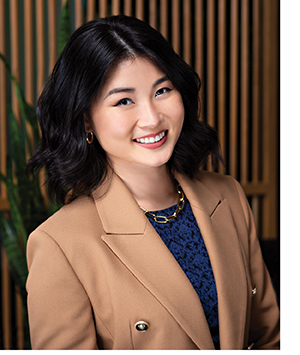 Thao Truong
Thao Truong
Client Manager / Morton Wealth / Calabasas, Calif.
Thao Truong faced a crossroads in high school. Her family had come from Vietnam (where she was born) and she had been educated in England and the United States. But at some point, the family couldn’t stay in the U.S. on their visa, and Truong had to decide whether to return to Vietnam to complete her education or stay in the U.S. to finish her education without family financial support.
“I decided to stay and become a finance major, hoping to learn how I could make money quickly and become a millionaire by age 18—of course, that wasn’t going to work out,” she says. “However, from that I was exposed to financial management, and I fell in love. I wanted to extend that knowledge to everyone.”
Her early career in wealth management took her from San Francisco to San Diego to Los Angeles, where she eventually landed at Morton Wealth. But she hasn’t forgotten her experience as a young immigrant, making her own way.
“I came here empty-handed,” she says. “I had to earn money, and learn how to manage it from 16 years old. It shaped my beliefs around money, so now I sometimes don’t give myself permission to enjoy the fruits of my success—which has given me insight into how clients feel and how they behave around money. I can relate to their feelings.”
At Morton, Truong has participated in the launch of “Herself,” a community-oriented women’s financial literacy and empowerment initiative spearheaded by the firm. She’s also taken the helm of “ModEarn,” the firm’s next-generation initiative targeting younger clients who wouldn’t normally meet Morton’s asset minimums.
“The typical client that is in their 60s with a house, kids and grandkids is very different from a 30-year-old with no house, maybe three or four young children, who is trying to break into management or become a partner in their law firm. They are all trying to do the right thing, get educated and situated so they can build up their finances, and we want to support them now—which means our service has to be lower-cost, but high touch.”
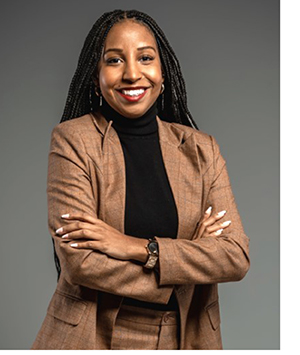 Chelsea Ransom-Cooper
Chelsea Ransom-Cooper
Managing Partner, Financial Planning Director / Zenith Wealth Partners / Jersey City, N.J.
Chelsea Ransom-Cooper was a math person growing up in a creative household in northern New Jersey. Her mother was a technical fashion designer (who even made Ransom-Cooper’s prom dress) but her income was at the mercy of fickle fashion demand and fashion house sales quotas, which led to a certain amount of money anxiety.
In college, Ransom-Cooper flirted with marketing but then leaned into her accounting and finance talents. Ernst & Young came knocking with internships in the New York, New Zealand and Australia, and she later got a job there in business consulting.
She was introduced to the idea of personal finance in college. But a career path wasn’t clear; she thought her passion for the subject might have to be satisfied in blogging. But if she couldn’t find the path at first, the path kept finding her: Friends and family members turned to her for help with things like college loans.
She credits advisor Douglas Boneparth (a former Young Advisor to Watch), for showing her a way forward. She started the CFP program in 2016 and did paraplanning work for a fee-only firm while still working at E&Y as a business consultant.
Eventually she went to Baker Avenue Wealth Management. In her four years there, she got a taste of working with clients with $2 million in assets. But the asset minimums kept rising. She wanted to serve people building wealth.
In October 2020, she partnered with Jason Ray at Zenith Wealth Partners, a Philadelphia-based firm that focuses on clients in their early 30s to mid-50s on their wealth accumulation journey, the majority of whom are women or people of color. “They’re also first-generation wealth builders, so they need that education, but they also want to work with people who look like them and empathize with them.” The team has grown to eight serving 180 households and a little over $30 million in AUM.
She says diversity is still badly needed in financial services because people want to work with women and people of color. “They would do so well because … the five to seven of us who are crushing it cannot service [everyone] looking for this type of support.”
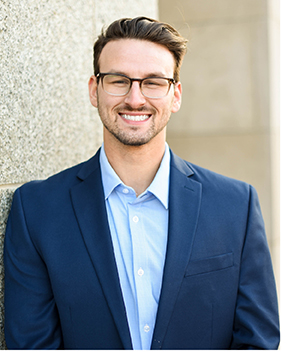 Thomas Kopelman
Thomas Kopelman
Co-Founder / AllStreet Wealth / Indianapolis
Back in 2021, barely three years out of college, Thomas Kopelman was working at an independent, fee-only RIA shop when a co-worker suggested he should go out on his own.
“He basically told me to launch my own firm around my brand,” recalls the young financial planner, now 27. “So I did.”
By September of that year, he and fellow advisor Treyton DeVore had launched AllStreet Wealth, an Indianapolis-based financial planning firm that’s specifically tailored to the unmet needs of millennials. “To work with this audience, we knew the traditional AUM model would not make sense,” Kopelman explains. “So we built a firm centered around yearly planning fees, and have a 0.35% AUM fee for any clients who want us to help manage their assets.”
Roughly 90% of his clients want advice about what to do with their investments, but they want to execute on their own. By charging a flat planning fee, his firm can “work with anyone who values our advice and is willing to pay for the partnership,” says Kopelman.
He acknowledges that most of his clients may not be the wealthiest of customers. But that’s OK with him. “I never wanted to work with retirees,” he says. “Honestly, my parents are not even retired, so it was unrelatable to me.”
He relates best to people in their late 20s to early 40s, he says, but another niche he serves is young business owners. “I get what they’re going through and can help a ton,” he says. “I’m better off sticking to what I know best, being able to go deep, versus being a generalist.”
“This industry requires nonstop learning,” he says, noting there are few if any programs for training advisors to work with younger clients. “We’ve had to create our entire process from scratch.”
Even though he’s a digital native, Kopelman says technology has its limits.
Artificial intelligence and robo-advisors can’t create a plan that is “unique to each person and what they are going through,” he says. “Advice will always be a need.”
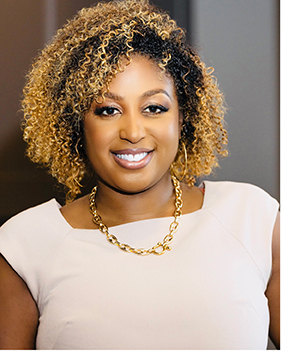 Kamila Elliott
Kamila Elliott
CEO and Founder / Collective Wealth Partners / Atlanta
Kamila Elliott says that her family knew she would be working with money when she was a child and she’d crinkle bills. A Philadelphia native, she worked a number of jobs in college at Penn State while pondering a law degree, working in retail clothing, at sub shops and banks, later selling university-affiliated credit cards to students.
She eventually worked at Vanguard fielding 401(k) participant calls. But she couldn’t own a book of business there without the CFP letters. She got those in 2013. That allowed her to start working with Vanguard’s ultra-wealthy clients, people with north of $20 million, and she flew around the country to meet them with estate attorneys and trust and tax specialists.
She had come from a very different background, a single-parent household where her mother was laid off a couple of times from accounting work at insurance companies. Elliott says memories of lean years (fewer clothes, less heat) have kept her frugal. She still uses the coupons in her Target app.
She left Vanguard in 2019. “After a while, I realized most of my clients were not that diverse,” she says of the wealthy Vanguard clients. “I had my CFP. I had my MBA in finance. I had five licenses from Finra. I’m not helping anyone who looks like me.”
After a few stints elsewhere, she and Brian McKinney started Collective Wealth Partners in 2022. “Our entire firm is Black. Right now we have five [CFPs].”
She says the firm works with more than 200 households and the clients are mostly between the ages of 30 and 50. The clients work mostly in tech or as small business owners. Many are young high earners seeking financial independence. The firm’s assets under advisement are north of $50 million and under management is $25 million.
Her experience helped her rise to heady ranks: Elliott was the chair of the CFP Board in 2022, one of the youngest chairs ever and the first African-American.
She says she asks her clients what money means to them. Sometimes those with a surplus are dealing with higher expectations, and that requires a different emotional understanding. “Everybody has a money story,” she says.
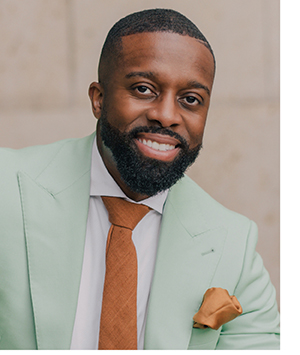 George Acheampong Jr.
George Acheampong Jr.
CEO and Managing Partner / Capitalwize / Charlotte, N.C.
George Acheampong says that when he was young he was the frugal kid who would cut grass and save his money, picking up the concepts of things like loan interest in elementary school when people would ask to borrow money.
Fast-forward to college, and his mother, who was getting remarried, turned to her son to ask how she would merge her finances with her new spouse’s. Acheampong graduated with a double major in marketing and economics in 2009, but said marketing was viewed as a luxury at many corporations. He reconnected with a friend at a financial advisory and looked for a position. “One of the things they had me do was create a list called Project 200—think of 200 friends, family members, associates, people that you know that you essentially want to make clients or ‘trade paychecks with.’
“But given the background that I come from, I definitely couldn’t develop a list of 200, not even 20 people because most people I was connected with didn’t come from that background. I realized very early on in my career that in order for me to have immediate impact in the space that I would have to build out a lane where I could serve and help people that maybe didn’t have the same level of access to financial literacy growing up and I could create a business model that would allow me to serve them.”
He started a blog in 2013 to provide information at scale, but he wanted to go deeper, and he started his own practice and RIA with a model for clients with solid income but no big accumulation of assets. To serve as many people as possible, though, he continued with content creation, including a podcast that airs every week and a financial literacy community called the “Melanin Millionaires Club.” “Our goal is to help 100,000 people of color achieve their first $1 million in net worth. Every week we have classes in that community. They have access to a library of past workshops.”
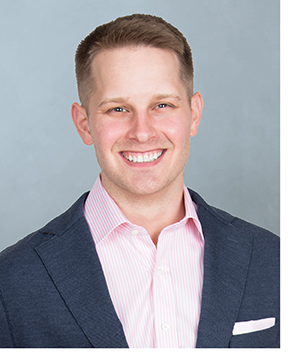 Steven Drost
Steven Drost
Founder / Drost Financial / Minneapolis
Over the past decade, the concept of a lifestyle financial planning practice has been disparaged by some in the industry pushing a narrative of go-go growth, enterprise building and serial acquisitions.
Steven Drost, founder of Drost Financial, rejects those narratives and favors building a business around balance.
“It was when Covid hit that everything started to change,” he says. “I would now be a partner in a major RIA—most of the people I considered my peers then are partners now in big or growing firms—but I had my first child on April 1, 2020. I got to work from home, didn’t have to commute, I controlled my own schedule.”
He says the experience helped him align his priorities in an early phase of his professional life. “My priority in life became not to make the most money, but to make money while living the lifestyle I wanted making as much quality family time as possible.”
He’s a “numbers nerd,” but enjoys the personal side of the business, which has led him to keep his firm small: He works with only 50 client households currently, and says there’s room for 10 to 20 more. The small ball approach also lets him enjoy side pursuits, such as the development of Quivr, a fee-only advisor-oriented CRM platform built on top of Salesforce.
Drost works primarily with people two or three years from retirement who live in the Minnesota and Wisconsin area. He focuses on diligent savers who have amassed retirement wealth on middle-class wages.
“Truthfully, my ideal client has made around $80,000 to $100,000 a year on average during their working life, because we can make the most impact on that kind of client,” he says. “We understand the Wisconsin and Minnesota health insurance platforms and can get free insurance through Medicare, we can help them do tax things. Usually the health insurance work alone covers our fee; we save the average client $20,000 a year on health insurance alone—everything after that is a marginal advantage to the client.”
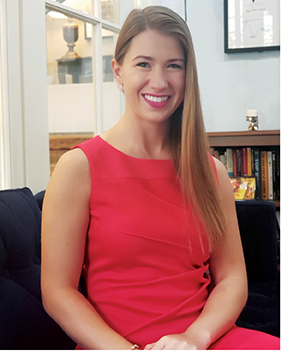 Autumn K. Campbell
Autumn K. Campbell
Lead Planner / Facet / Tulsa, Okla.
Autumn K. Campbell is like many younger advisors: She didn’t originally have a financial services career in mind. In fact, not too long ago she was working as a teacher and high school counselor when she and her fiancé hired a CFP to help sort out their finances. That got her thinking.
“I ended up going to night school to become a CFP with no intention of going into the industry,” Campbell says.
She later joined Facet (formerly Facet Wealth) in 2020, eventually becoming a lead planner responsible for approximately 200 client relationships.
“I have a psychology background, and I’ve found that to be very helpful, as well as the teaching aspect of my background. … You don’t get anything done if people don’t trust you and believe what you’re telling them, and that it is worthwhile. So people have to come first, and the finances come second.”
That’s true even in a technology-enabled firm like Facet, and with over 100 certified financial planners serving large numbers of clients at low cost with no asset minimums.
Facet was a good fit because it allowed her the flexibility to live her life and enjoy her family. She sometimes works in the evenings, and Facet operates mostly virtually.
She sees many other young advisors “really carving out a work-life balance, finding autonomy and creating harmony between their lifestyle and their client relationships in a way that makes sense, customizing their personal experience and the client experience in just the way they want to.”
The firm also allows her to work with a very diverse client base, including people at all income levels, says Campbell, who is from a low-income background and has taught in low-income schools.
“I have a particular affinity for people who are trying to make the right choices for their families and who have questions that the CFP doesn’t even really prepare you for, choices that come before wealth accumulation and preservation,” she says. “We’re talking about really connecting the dots and finding ways to make it all make sense with finances—if we crack that code, that’s when we can start talking about wealth in families.”
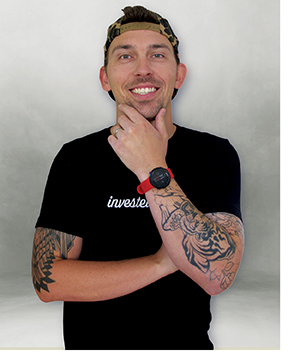 Colton Etherton
Colton Etherton
Founder / Out of the Office Planning / Portland, Ore.
Colton Etherton likes to say he got into finance against his will.
He once trained dogs in his hometown of Phoenix before moving to Portland with his new bride in 2013. She found a job at a local bank and told him that he should apply for a job there, but he resisted because he thought “it would be extremely boring.”
He eventually took a job as a teller. “And here I am a decade later still in finance,” he says. He did stints at Merrill Lynch, Charles Schwab and Johnstone Financial Advisors. Then he launched his firm, Out of the Office Planning, in January 2021. He initially had hopes of serving millennials, but that focus turned out to be too general, and it was a struggle attracting clients.
A meeting with a prospective client who happened to be a tattoo artist sparked an idea: a niche practice focused on these artists. He was drawn to the fact that they are self-employed and no advisor focuses on them. Some artists charge $200 an hour, and sometimes get $700 for a half day and up to $1,200 for a full day (plus a tip).
He sat on the idea at first. He was the primary earner, and his wife warned him against starting from scratch with such a “weird niche.” But a phone call with an XY Planning Network colleague helped seal his decision. He redid his website and began a social media push in October 2021. He now bills himself as “The Tattoo Artist Advisor,” and finds most of his clients on Instagram, where he does the bulk of his marketing, as well as tattoo conventions, webinars and financial education workshops.
He has 10 ongoing clients plus he does one-on-one financial plans for a few others. Clients pay a flat fee, making monthly payments, though he recently added hourly rates.
When he started he had only two tattoos (pictures of his grandfather and uncle). Since starting his firm, he has since gotten two more on his right arm and he’s getting a full sleeve on the left. And there’s more to come.
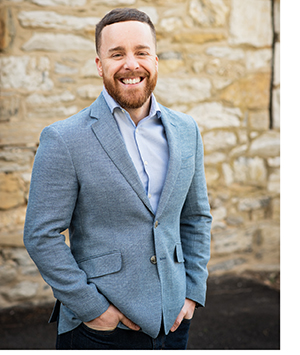 Michael P. Hartman
Michael P. Hartman
Founder / Hyperion Financial / Shillington, Pa.
Michael Hartman, the founder of Hyperion, had spent more than a decade in financial services at big firms. Then he decided he’d rather serve clients his own way.
“When you’re part of a large organization, there’s generally some limitations on what you can do, whom you can serve, what you can charge,” he says. “I just wanted to break free from all of that and create something that allowed me to avoid some of those limiting factors.”
In May 2021 he launched Hyperion Financial, a firm specializing in pre-retirees. Hartman, 35, says he and his two partners (who are also in their 30s) particularly like addressing the needs of their generation. “Regardless of what [the clients] have in assets or income, whatever their situation may be, we try to find a way to serve them,” he says.
“We are not big suit people,” he says. “We take more of a jeans-and-polos kind of approach.” The firm has no minimum for clients’ investable assets. Instead, it charges a flat fee.
Hartman, a graduate of Shippensburg University of Pennsylvania, says he was always good with numbers but never saw himself going into financial planning until his junior year of college—2008, the year of the financial crisis. He ended up assisting an advisor that his mother knew, which he says was “a great experience. It really opened my eyes to what we do as advisors. From there, I was hooked.”
Hartman also saw the difference a financial plan can make after both his father and father-in-law died. His family had a plan for his widowed mother, but his wife’s family did not. “That was a huge motivator for me to help clients secure their futures,” he says. “I’ve become super passionate about it.”
For the future, Hartman is optimistic. “You’re seeing a wave of bright minds getting into the industry and working with lots of different niches,” he says. Artificial intelligence and robo-advisors may be useful tools for automating certain tasks, he concedes, but clients want to work with a human being. “At the end of the day, this is a relationship business.”
 Zach Ashburn
Zach Ashburn
President / Reach Strategic Wealth / Winston-Salem, N.C.
When Zach Ashburn first stepped on the path of specialization, he took a deep dive into his motivations and his need to pursue entrepreneurship. He realized his clients would look a lot like him.
“Their story is my own story,” says the 32-year-old founder of Reach Strategic Wealth. “I arrived here through the process of drawing increasingly smaller circles around the business.”
“Here” is his tightly focused financial planning firm, founded in 2019, that serves the needs of entrepreneurs who have left a successful corporate job to do their own thing—and control their own time—as consultants.
“It’s all about the value of time,” he says. He adds that he didn’t know exactly how important owning his time would be when he first considered going solo, but it soon became evident. “My wife and I became foster parents about six months before I launched Reach. We went from no kids to three kids. If I were also having to clock in nine-to-five somewhere, I could never have managed it.”
Everything Ashburn does supports this focus, which means other kinds of clients, including mid-career W-2 professionals with assets, probably won’t find what they’re looking for at Reach. His process revolves around an annual calendar, with the needs of an entrepreneur at its center.
At the beginning of the year, Ashburn makes client cash-flow projections and ensures all tax moves from the previous year are wrapped. He also times estimated tax payments and important budget items. In the spring, he meets with clients for financial plan updates to ensure that savings and portfolio performance are on track. In the summer, Ashburn reviews client tax returns. And they meet with him once more in the fall to complete any final tax-efficient strategies, as well as to review insurance and estate needs on alternating years. On the investment side, Ashburn manages tax-efficient ETFs in-house.
Ashburn charges a fee for service, which he says works best when planning is at the forefront of the relationship. He currently has roughly 30 clients and expects to grow to around 60.








